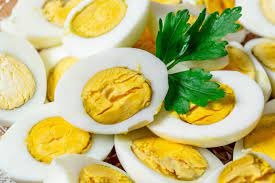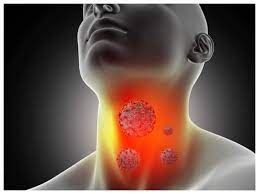Eat eggs in this way if your cholesterol is excessive; otherwise, your health can suffer
Understanding the nuances of managing cholesterol is essential if one is to maintain good health. With the goal of demystifying the connection between excessive cholesterol and egg intake, this thorough book offers insightful advice on how to appropriately include eggs in your diet.
Understanding Cholesterol: ally or enemy?
Knowing Your Cholesterol Levels
Frequently misinterpreted, cholesterol is a lipid that is essential to all body processes. In order to understand its significance, let us examine the dynamics of cholesterol levels.
Dietary Cholesterol’s Function
Blood cholesterol levels may be influenced by dietary cholesterol, which is found in foods like eggs. Maintaining equilibrium is crucial for general health.
There are two forms of cholesterol: high-density lipoprotein (HDL) and low-density lipoprotein (LDL). It’s common knowledge that HDL cholesterol is “good” while LDL cholesterol is “bad.” Keeping one’s balance is essential for heart health.
Overcoming the Egg Dilemma: Should I Eat or Should I Not?
Busting False Egg Myths
It is wrong to stigmatize eggs because of their high cholesterol level. According to recent research, the influence of dietary cholesterol on blood cholesterol may not be as great as previously believed.
Studies show that blood cholesterol levels are not significantly impacted by dietary cholesterol in most individuals. Rather, fats that are saturated or trans have a greater effect on cholesterol.
The Superpower of Nutrition
Eggs are a nutritious powerhouse, regardless of the cholesterol controversy. Rich in vital minerals (iron and zinc), vitamins B12, D, and folate, and premium protein, they provide a plethora of health advantages.
Techniques for Eating Eggs Healthily
1. Cautious Portion Management
Eggs are rich in nutrients, but moderation is the key. You may take advantage of their nutritious advantages without raising your cholesterol levels if you eat them in moderation.
For most people, eating two to three eggs a day is typically regarded safe. Individual reactions could differ, however, so it’s important to adjust intake based on concerns about one’s own health.
2. Select Poached or Boiled Eggs
It concerns how eggs are cooked. By drastically lowering the amount of bad fats consumed, boiling or poached eggs rather than frying them will improve heart health.
The nutritional profile of eggs may be weakened when they are fried, particularly if they are high in saturated fat. Nutrient integrity is preserved by boiling or poaching.
3. Combining with Foods High in Fiber
The effect on cholesterol levels may be lessened by eating whole grains and vegetables, which are high in fiber. Fiber supports a healthy balance by assisting in the absorption and excretion of cholesterol.
Think about adding eggs to meals that include sources of fiber to create a dish that is heart-healthy and well-rounded.
4. Consistent Evaluation of Cholesterol Levels
In particular when it comes to your health, knowledge really is power. Monitoring your cholesterol levels on a regular basis allows you to make proactive dietary and lifestyle changes.
Regular check-ups with a healthcare provider may provide you important information about your cholesterol profile. Making educated judgments about nutrition and general health management is made possible by this knowledge.
Recipes for Egg Delights That Are Heart-Healthy
1. Avocado and Tomato Salad
Let’s look at a delicious recipe for Mediterranean Egg Salad that mixes heart-healthy components with the deliciousness of eggs.
Components:
Eggs, hard-boiled
rosy tomatoes
Lettuces
Onion red
Cheese Feta
Olive oil.
Lemon extract
fresh herbs, such as dill or parsley
Add pepper and salt to taste.
Guidelines:
Chop the veggies and hard-boiled eggs.
Mix in a basin with the feta cheese crumbles.
Pour in some lemon juice and olive oil.
Add fresh herbs, salt, and pepper for seasoning.
Enjoy a nutrient-dense, low-cholesterol lunch after giving it a little toss.
2. Omelette with Veggie Filling
Indulge in a tasty Veggie-Filled Omelette meal that is ideal for anyone watching their cholesterol consumption.
Components:
hens
Sprouts
Peppers bell
mushies
Celery
Cheese (not required)
Olive oil.
Add pepper and salt to taste.
Guidelines:
In a bowl, whisk the eggs.
Sauté veggies in olive oil until they become soft.
Over the veggies in the pan, pour the eggs.
Simmer until the sides become firm, then fold in half.
If desired, top with cheese and season with salt and pepper.
Present a delectable omelette that is low in cholesterol and high in nutrients.
Making Dietary Decisions: A Customized Method
Seeking Advice from a Nutritionist
It is quite beneficial to speak with a dietitian for individualized advice. Based on your health profile, they may customize nutritional recommendations, accounting for things like age, weight, and medical history.
Nutritionists may provide a comprehensive and individualized approach to cholesterol control by offering a sophisticated knowledge of how eggs fit into your entire diet.
2. Modifying Your Lifestyle to Manage Your Cholesterol
Managing cholesterol involves more than just food choices. Modifications to lifestyle, such as regular exercise and stress management, are essential for heart health in general.
Physical exercise helps control LDL (bad) cholesterol and increases HDL (good) cholesterol. Stress-reduction methods like yoga and meditation provide a comprehensive strategy for heart health.
The Final Word
Striking a Balance: Eating Eggs Sensibly
In conclusion, balance and awareness are essential for a positive relationship with eggs. Eggs may contribute significantly to a diet high in nutrients, but in order to optimize cholesterol levels, moderation and wise selections are necessary. You may get the nutritional advantages of eggs without sacrificing your health if you use them sensibly, think about how they cook, and have a holistic outlook on life.







